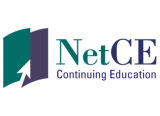CULTURAL COMPETENCY: PROVIDING MEANINGFUL CARE TO A DIVERSE PATIENT POPULATION

We all possess innate biases that may cause us to treat patients differently without us even being aware of it. At the end of this course, you should be able to take a second look at instances in your patient interactions that might cause misunderstandings.
Category
Format
- Self-study / Enduring
Credits
- 0.50 MOC
- 0.50 AMA PRA Category 1 Credit™
The Intersection of Pain and Culture

Pain is invisible, and diagnosis depends on patients' reports. These factors contribute to the treatment of pain to be devalued and stigmatized. When issues of culture, race, and ethnicity come into play with pain experiences, it becomes even more complex.
Category
Format
- Self-study / Enduring
Credits
- 5.00 Approved Continuing Education (ACE)
- 5.00 Association of Social Work Boards (ASWB)
Pain Management Pearls: Opioids and Culture

Pain affects all domains of life, and clinicians have few effective tools at their disposal to help these patients. Opioids remain the strongest group of analgesic drugs available.
Category
Format
- Self-study / Enduring
Credits
- 2.00 AMA PRA Category 1 Credit™
- 2.00 ANCC
- 1.00 Contact hours
Bridging the Gap: Emotional and Cultural Intelligence in Clinical Practice

The most productive companies in the world stress the importance of both emotional and cultural intelligence in their leaders. We will look at applying these principles to patient care as a way to improve adherence, quality outcomes, and clinician success. The key is self-awareness.
Category
- Cultural Competency
Format
- Self-study / Enduring
Credits
- 1.00 AANP Contact Hours
- 1.00 AMA PRA Category 1 Credit™
Promoting the Health of Gender and Sexual Minorities

The gender and sexual minority (GSM) population is a diverse group that can be defined as a subculture. It includes homosexual men, lesbian women, bisexual persons, transgender individuals, and those questioning their sexual identity, among others.
Category
Format
- Self-study / Enduring
Credits
- 5.00 Approved Continuing Education (ACE)
- 5.00 Association of Social Work Boards (ASWB)
TeleMental Health Crisis Management

This course reduces risk and provides education and competency to meet regulatory and licensure requirements for practitioners providing telemental health services to patients who may have a crisis at a distance.
Category
Format
- Self-study / Enduring
Credits
- 1.75 AMA PRA Category 1 Credit™
Telehealth Crisis Management

This course reduces risk and provides education and competency to meet regulatory and licensure requirements for practitioners providing Telehealth services to patients who may have a crisis at a distance.
Category
Format
- Self-study / Enduring
Credits
- 1.75 AMA PRA Category 1 Credit™
Maintaining a Healthy Marriage: Implications for Counselors

Although the divorce rate has stabilized at about 50%, this course will not focus on unhealthy marriages or factors that contribute to divorce. Rather, the course will focus on maintaining a healthy marriage and long-term relationships.
Category
Format
- Self-study / Enduring
Credits
- 2.00 Approved Continuing Education (ACE)
- 2.00 Association of Social Work Boards (ASWB)
Navigating Power Differentials as a Physician in the “Me Too” Era

With a documented rise in reports of sexual harassment and inappropriate sexual behavior across medical specialties in the workplace, it is important for physicians and medical leaders to be aware of the prevalence of problematic sexual behavior in physicians.
Category
Format
- Self-study / Enduring
Credits
- 1.00 MOC II
- 1.00 AMA PRA Category 1 Credit™
Telehealth Patient Practitioner Protocol

This course reduces risk and provides education and competency to meet regulatory and licensure requirements for practitioners providing Telehealth services to patients while integrating appropriate patient and practitioner communication.
Category
Format
- Self-study / Enduring
Credits
- 2.25 AMA PRA Category 1 Credit™

 Facebook
Facebook Twitter
Twitter LinkedIn
LinkedIn Forward
Forward